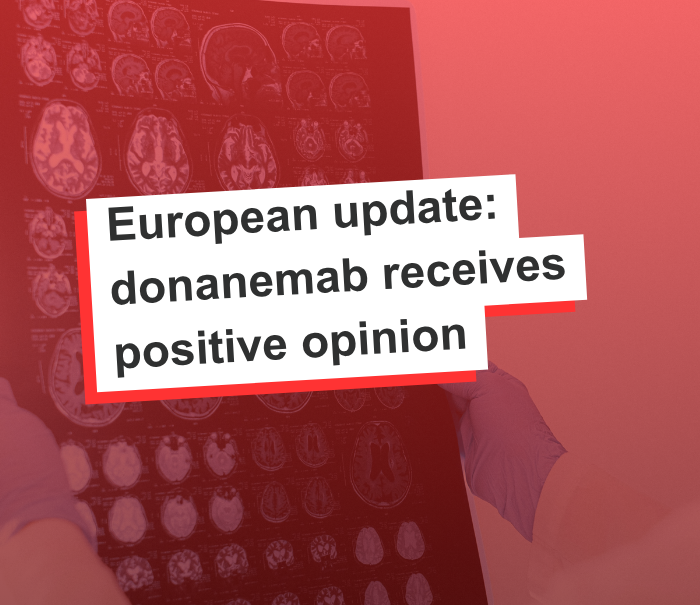Today, 25 July 2025, the European Medicines Agency’s (EMA) Committee for Medicinal Products for Human Use (CHMP) has issued a positive opinion recommending donanemab (Kisunla) for the treatment of early symptomatic Alzheimer’s disease in adults with confirmed amyloid pathology who are apolipoprotein E ε4 (ApoE4) heterozygotes or non-carriers. The European Commission is expected to make a regulatory decision on donanemab in the coming months.
This is a reversal of an earlier recommendation.
The treatment has now received approval in the United States, Japan, China, the United Kingdom, Australia, Brazil, Mexico, and the UAE. It has also received marketing authorization in Singapore, Taiwan, Qatar, Kuwait, and Bahrain.
Donanemab is an intravenous disease-modifying drug for Alzheimer’s disease, and is the second monoclonal antibody treatment to be recommended for marketing authorization by the Committee for Medicinal Products for Human Use (CHMP) of the European Medicines Agency (EMA).
About the news, ADI CEO Paola Barbarino said:
Despite the delays in Europe, this is an important update from the EMA, effectively adding to treatment choices and access across the region. We now encourage EU Member States to anticipate the next steps and ensure that their healthcare systems are ready to respond swiftly, in light of the progressive nature of Alzheimer’s disease.
Following the meeting, the EMA posted the following information on their website relating to the decision:
Following a re-examination, the committee has recommended granting a marketing authorisation for Kisunla (donanemab), a medicine intended for the treatment of early Alzheimer’s disease. The committee has recommended granting a marketing authorisation in people who do not have a copy of the ApoE4 gene, a certain form of the gene for the protein apolipoprotein E, or people who have only one copy of the gene.
The previous delays in European approvals of new treatments continue to highlight a disparity in regulatory evaluation and approvals of Alzheimer’s disease treatments and therapies worldwide. ADI has been highlighting these regulatory discrepancies in an effort to emphasize the importance of patient choice in Alzheimer’s treatments.
We will continue to monitor these developments and provide updates as they become available.
Note:
The EMA is the medicines regulator which assesses the safety and quality of new medicines across the 27 EU Member States plus Iceland, Norway, and Liechtenstein. The CHMP is the committee of the EMA responsible for determining the safety and efficacy of new medicines and has a role in determining the authorisation of medicines by the EMA.
